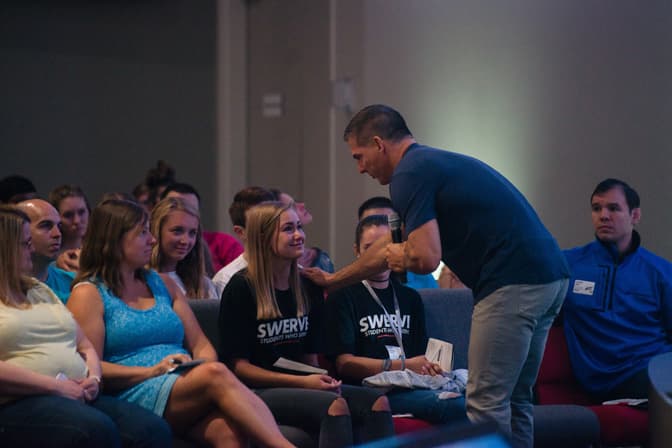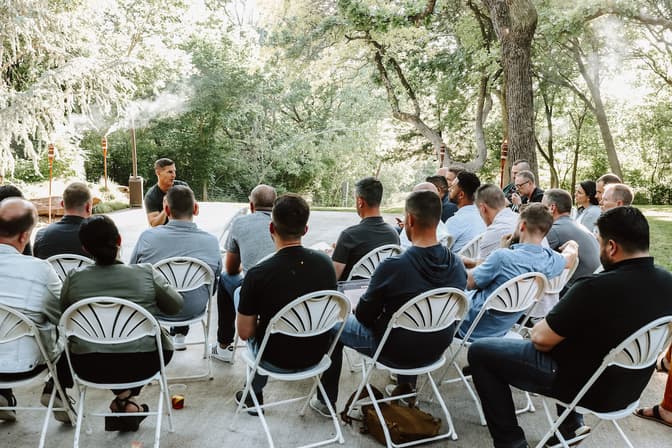This Phrase Might Be Ruining Your Team’s Potential
One phrase might be sabotaging your team’s potential. I’ve said it, you’ve said it, and it sounds like this ...
- “Our sales team won’t make calls after 7pm.”
- “This new generation won’t work more than 40 hours a week.”
- “Our volunteers don’t care about the details.”
Sounds harmless, right? It’s not.
It’s the forbidden three-word phrase that limits potential, creates a culture of blame, and lets leaders off the hook: “Our people won’t.”
Left unchecked, this phrase will weaken your influence and stunt your team’s growth. In this post, I’ll share how great leaders take responsibility and cast vision to inspire thriving teams.
The Forbidden Phrase
Time and time again, I’ve heard leaders use “our people won’t” as an excuse for weak areas of leadership.
When you say “our people won’t,” you’re doing something dangerous. You’re shifting the blame for underperformance onto others and removing your responsibility to lead them better.
Sometimes it goes further. You might add qualifiers to make the excuse sound reasonable, blaming geography, demographics, age, education, or culture:
- “In our part of the country, people just won’t …”
- “Given their background or education, they won’t …”
- “Because they’re Gen Z, they won’t …”
Sound familiar?
Here’s what I’ve learned: A great leader never casts blame. A great leader always takes responsibility.
The bottom line is this: You can make excuses or you can make a difference—but you can’t make both.
The Better Mindset: “I haven’t led them to …”
The leadership shift that changed everything for me was this:
Instead of saying “our people won’t,” I’ve learned to say, “I haven’t led them to …”
This is about having an ownership mindset. When you take responsibility for your outcomes, the forbidden phrase shifts to:
- “I haven’t led them to value a strong work ethic.”
- “I haven’t led them to embrace our mission.”
- “I haven’t led them to think like owners.”
Leadership starts with ownership. It’s easy to point fingers, but it’s much harder to say, “I haven’t led them there yet.” That’s what great leaders do.
I’ll say it again: A great leader never casts blame. A great leader always takes responsibility.
Casting Vision, Not Blame
If you want to see different results in your team, you have to lead differently. Don’t criticize what you haven’t cast a clear vision for.
Here’s what I do when I find a gap between what I expect and what I see in my team:
- I show them why what I care about actually matters.
If people don’t see the “why,” they won’t follow through for the “what.” Don’t assume they understand your reasons. Explain them and show them. - I say it again. And again. And again.
Repetition isn’t redundant. It’s leadership. If it matters, keep saying it. - I celebrate any forward progress.
Even a small win is a step in the right direction. It shows your team you value their growth and work. What’s celebrated gets repeated. - I tell stories of people who get it right.
Stories help shape culture. When you highlight someone else who is living the vision, your team is inspired to follow. - I set the standard and try to exceed it.
You can’t ask for what you’re not living out. Your example should raise the bar.
Great leaders don’t make excuses. They own their outcomes and cast vision for a better way.
Start replacing “our people won’t” with “I haven’t led them to.” You’ll move from blame to ownership and from frustration to progress. Cast vision, model the standard, and watch your team rise to meet it.
4 Qualities of a Great Leader
What you think makes a great leader might surprise you.
The top leaders aren’t always the most popular, the most impressive, or the most gifted. But they’re the ones people love to follow.
Learn the four qualities that consistently set these leaders apart. And the best part is, you can start developing them right now.


